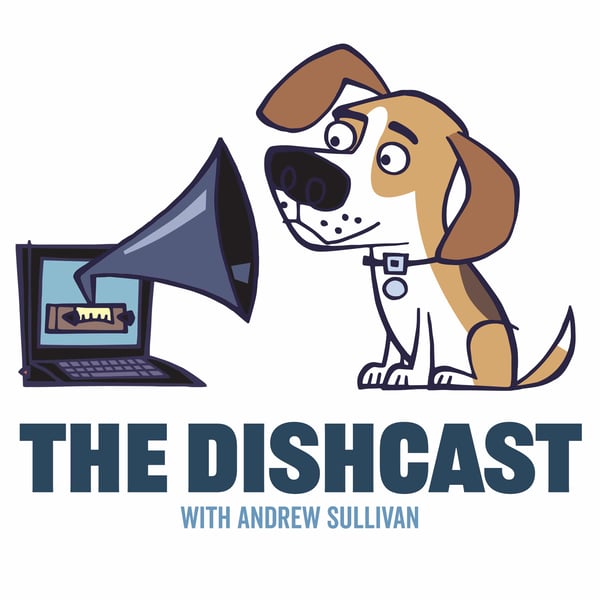Nigel Biggar On Colonialism
The Dishcast with Andrew Sullivan
Andrew Sullivan
4.6 • 836 Ratings
🗓️ 5 May 2023
⏱️ 38 minutes
🧾️ Download transcript
Summary
Nigel Biggar is an Anglican priest, academic and writer. Formerly the Regius Professor of Moral and Pastoral Theology at Oxford, he now directs the McDonald Centre for Theology, Ethics & Public Life and chairs the board of the UK’s Free Speech Union. The author of many books on ethics, his controversial new one is Colonialism: A Moral Reckoning.
For two clips of our convo — debating what makes an empire worse than others, and whether the British started or just exploited the wars in their colonies — pop over to our YouTube page. Other topics: writing his book as a response to revisionism; the 1619 Project; the difficulty he had getting it published; the various motives of British colonialism and its slow development; how anti-slavery stemmed from the Enlightenment and Christianity; the colonists who fled poverty and religious persecution; the Irish Famine; the contempt and fear and racism toward native peoples; the natives who welcomed trade and protection; whether plagues were intentional or unavoidable; non-European empires and human sacrifice; the ubiquity of slavery throughout history; the unique evil of the transatlantic trade; maroons who kept slaves of their own; Zionism; the colonists who prized foreign cultures; the hypocrisy of British subjects in America exploiting natives; the Indian MP in the 1890s; Indians fighting alongside the British in WWII; the decolonized who embraced the liberal institutions of the Brits; the Chinese who fled communism for the colony of Hong Kong; the diversity of Boris’ cabinet; and the historic triumph of Rishi Sunak.
Browse the Dishcast archive for another discussion you might enjoy (the first 102 episodes are free in their entirety — subscribe to get everything else). Coming up: Tabia Lee on her firing as a DEI director, Chris Stirewalt on Fox and the MSM, Ben Smith on going viral, John Oberg on veganism, and Patrick Deneen on a post-liberal future. Send your guest recs and pod comments to [email protected].
Transcript
Click on a timestamp to play from that location
| 0:00.0 | The Hi there. It's another discast. It's a beautiful spring. We're on a kind of a role here with the people we have. And today we thought we'd come up with another completely uncontroversial and tedious and acceptable subject. |
| 0:43.9 | We're going to defend colonialism, or at least my guest is going to defend colonialism. |
| 0:48.2 | And I am going to probe him on his defenses of colonialism. |
| 0:52.8 | And his name is Nigel Biggar, and he's an Anglican priest, |
| 0:58.4 | academic, and writer. And he's formerly the Regis Professor of Moral and Pastoral Theology |
| 1:04.2 | at the University of Oxford. He directs the MacDonald Center for Theology, Ethics, and Public |
| 1:10.1 | Life, and chairs the board of the UK's Free Speech Union. |
| 1:13.9 | And his new book, the one that he had quite a trouble actually getting published, but having published it in Britain earlier this year, turned into a few weeks on the bestseller list. |
| 1:25.2 | Turns out that figuring out the pluses and minuses of colonialism and the motives for it |
| 1:32.9 | and the morality of it is still actually a subject that lots of people are interested in talking |
| 1:39.0 | about. |
| 1:39.6 | Nigel, I just want to thank you for coming on the Ditchcast to talk, let's talk about the colonies. |
| 1:45.7 | And here we are from one of the former colonies, reflecting upon the British legacy. |
| 1:53.9 | Thank you for coming. |
| 1:55.2 | Tell me, as we start a little about yourself. |
| 1:57.5 | Where were you born and where did you grow up? |
| 2:01.5 | So, Andrew, I was born in South West Scotland in spite of my accent. If you catch me when I'm |
| 2:06.9 | slightly drunk and I say, where Jerusalem, you can hear the Scots come through, but otherwise |
| 2:10.4 | I sound English. I was born in 95, which is important in a moment. I'll tell you why. |
| 2:17.1 | And I went to school, first of all, |
| 2:19.6 | in Scotland then in southern England and came up to Oxford in 1973 to read history |
| 2:27.1 | before you did, seven, eight years later. Then I went to North America for, turned out to be seven years. |
... |
Please login to see the full transcript.
Disclaimer: The podcast and artwork embedded on this page are from Andrew Sullivan, and are the property of its owner and not affiliated with or endorsed by Tapesearch.
Generated transcripts are the property of Andrew Sullivan and are distributed freely under the Fair Use doctrine. Transcripts generated by Tapesearch are not guaranteed to be accurate.
Copyright © Tapesearch 2025.

